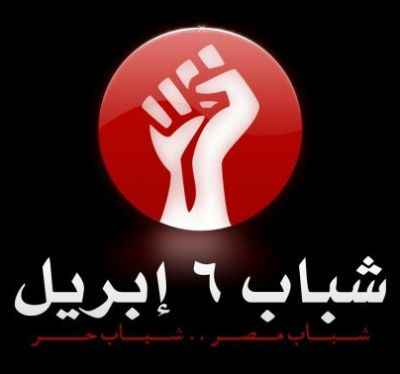Following the fallout of the recent round of negotiations between Egypt, Sudan, and Ethiopia over the Renaissance Dam, Egypt has started to seek other methods to negotiate the building of the dam, with high-level officials expected to meet to contain the mounting tensions the progress of the dam had created. Egypt is arguing that the construction of the dam will limit its water shares, while Sudan and Ethiopia deny such claims.
Ethiopian Prime Minister Hailemariam Desalegn is due to visit Cairo next January, well-informed sources have told Daily News Egypt. The expected visit has raised controversy in the Egyptian political sphere as Desalegn is expected to give a speech at the Egyptian Parliament, a proposition that was not welcomed by all members.
On the one hand, shortly after the visit was announced, MP Abdel Hamid Kamal and another 18 MPs submitted a memorandum to Parliament Speaker Ali Abdel Aal rejecting the visit, arguing that Addis Ababa will garner points from the visit in case it plans to go to international courts. On the other hand, the pro-government majority bloc in the parliament, which controls 350 seats, announced their support of the visit, criticising the 19 MPs who rejected it.
Discontent prevailed following the failed tripartite ministerial meeting between Egypt’s Minister of Irrigation Mohamed Abdel-Ati and his counterparts from Sudan and Ethiopia. The meeting ended on 12 November without reaching an agreement on the dam’s potential impact on Egypt and Sudan.
Abdel-Ati told Daily News Egypt that Ethiopia previously claimed to have conducted studies needed on all the different aspects of the dam. However, with Egypt disapproving the results of these studies, an international committee was formed to evaluate the studies, the minister added.
Later, the committee reached a conclusion that the studies conducted by Ethiopia were “incomplete.” Abdel-Ati said, “the international committee stated that the missing studies are about the dam’s environmental, economic, and social impact on the downstream countries [which include Egypt].”
Despite Ethiopia’s constant denial of any negative impact the dam could have, Abdel-Ati assures that “all studies confirmed that the Renaissance Dam has a negative impact on Egypt’s share of the Nile water and the whole world knows it.”
Additionally, he asserted that Egypt “has nothing against the building of dams on the Nile water; we only have a problem when a country decides to build a dam without coordinating with the rest of the Nile basin countries to reach an agreement on the operationalisation process.”
Hany Raslan, an expert on Sudan and Nile Basin country affairs at Al-Ahram Centre for Political and Strategic Studies (ACPSS), defines the “operationalisation process” as the process which determines the number of years to fill the dam, and regulates the coordination between the Renaissance Dam and the rest of the dams constructed on the Nile.
On the failure of the last round of negotiations, Raslan told Daily News Egypt that “Egypt has made lots of compromises already, and tolerated the Ethiopian evasion and procrastination to sit and discuss a binding agreement; and the operationalisation is the last and most important point for Egypt. It cannot be compromised.”
He went on explaining how Ethiopia considers the Nile a state property and “this goes against international law which clearly implies that upstream countries [in any river] cannot claim to privately own the river’s water alone.”
Discussing the diplomatic approach of Ethiopian leaders, Raslan said “Ethiopia should start focusing less on trying to give the image of being cooperative before the international community, and actually focus on cooperating in reality with practical solutions.” Agreeing with him is Minister Abdel-Ati who described the potential visit of the Ethiopian PM to Cairo as “an opportunity for the Ethiopians to practically prove good will.”
Another factor that complicates the dam’s case is Sudan’s position on the Renaissance Dam, with Sudan siding with Ethiopia on the dam even though it would affect its share of Nile water as well. After the 12 November negotiations round had reached a fallout, Sudanese and Egyptian officials have been exchanging angry statements with Sudan accusing Egypt of previously “loaning” a percentage of its water, a claim that was refuted by the Egyptian side.
This dispute was renewed after Egypt announced on 9 December that it will construct a dam named Shalateen, in the Halayeb and Shalateen triangle South of Egypt, a step that was heavily criticised by Sudanese media describing it as an Egyptian attempt to pressure Sudan to change its position on the Renaissance Dam.
The case of Halayeb and Shalateen has long caused a political dispute between Egypt and Sudan with the latter constantly claiming that the two small cities belong to the Sudanese state and had been waving a flag of taking the dispute to international arbitration. Hence, the news of the construction of the Shalateen dam was deemed a provocation.
Commenting on the media reactions, Raslan told Daily News Egypt that “these are empty claims of a political and sentimental nature with no legal basis whatsoever,” explaining that this is only a small dam with a capacity of 7m cubic metres, in comparison to the High Dam whose capacity reaches billions of cubic meters.
The Egyptian Ministry of Irrigation released a statement, on 11 December, saying that the function of the Shalateen dam is to counter the floods the city faces. Abdel-Ati affirmed this to Daily News Egypt saying “Shalateen—like any other Egyptian city—has the right to be protected from floods.”


